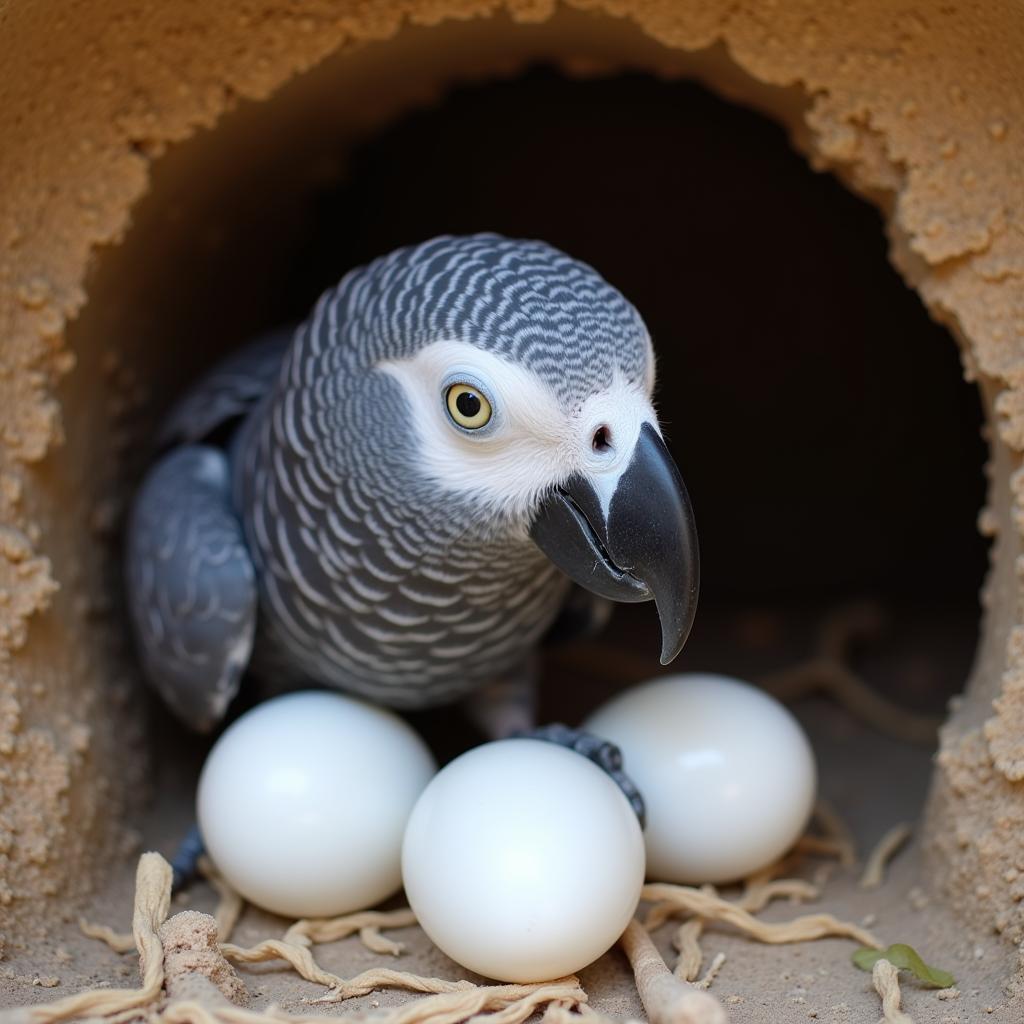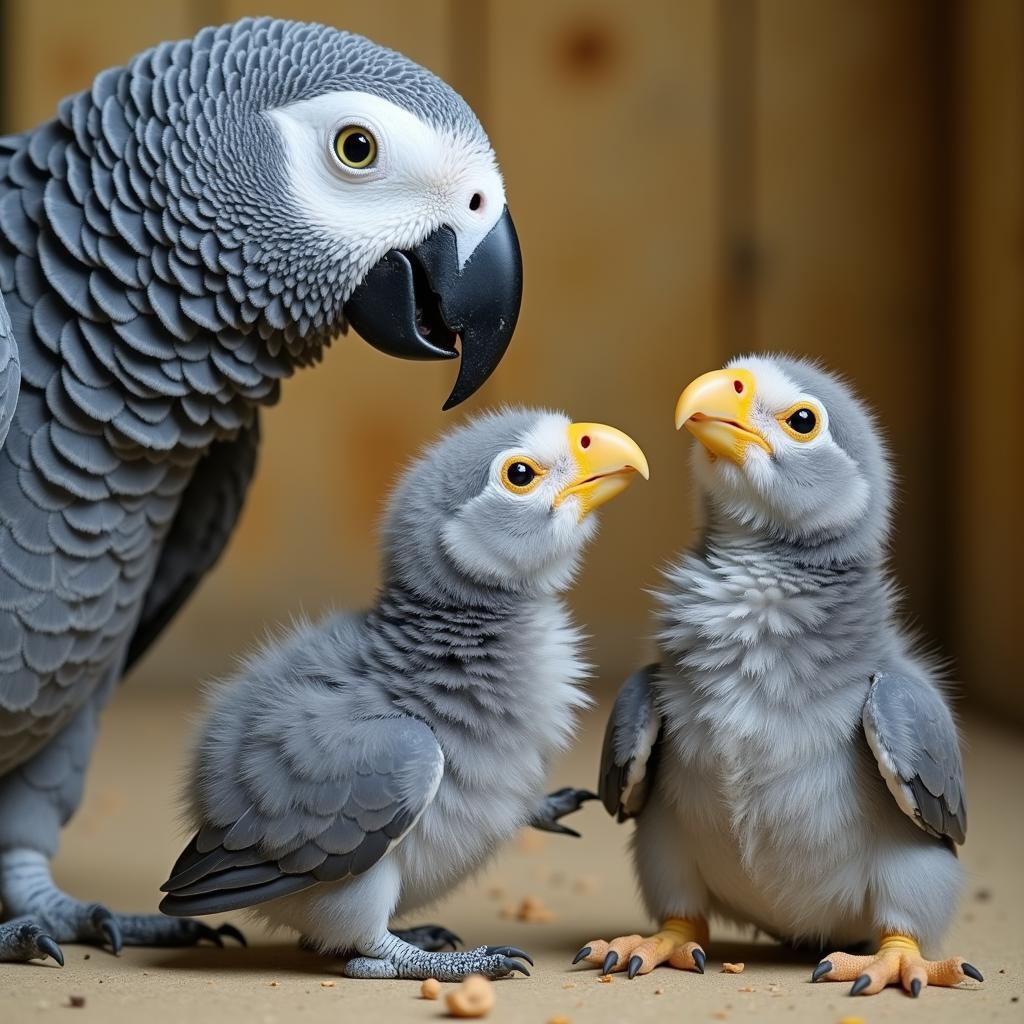African Grey Parrot Sitting Tight on Eggs: A Full-Time Commitment
An African Grey parrot sitting tight on eggs is a sight to behold. It signifies the beginning of a challenging yet rewarding journey for these intelligent and social creatures. But what does it truly entail for the parrot to dedicate itself “full time” to its eggs? Let’s delve into the fascinating world of African Grey parrot breeding and explore the commitment involved.
The Intricacies of African Grey Parrot Breeding
African Grey parrots, known for their exceptional intelligence and mimicry skills, are not unlike many bird species when it comes to breeding. It’s a process governed by instinct, environmental cues, and a strong pair bond.
Choosing the Right Nest and Location
In the wild, African Greys typically nest in tree cavities. As pets, they require a spacious nesting box placed in a quiet, secluded area of their environment. This provides a sense of security crucial for successful breeding.
The Mating Rituals and Egg-Laying Process
Before eggs appear, a pair of African Greys will engage in courtship behaviors, strengthening their bond. These behaviors can include mutual preening, feeding each other, and soft vocalizations. Once the female is ready, she will lay a clutch of 3-5 eggs, usually one every other day.
Incubation: A Shared Responsibility
Both parents share the responsibility of incubation, with the female typically spending more time on the eggs, especially during the night. The male plays a vital role in feeding his mate and guarding the nest.
 African Grey Parrot Incubating Eggs
African Grey Parrot Incubating Eggs
The Full-Time Job of an Expectant Parrot Parent
“Sitting tight on eggs” is more than just a phrase; it represents a significant commitment from the African Grey parrot. Here’s why:
- Constant Warmth: Maintaining the ideal temperature for egg development is paramount. The parents diligently regulate the temperature by adjusting their position on the eggs and using their body heat.
- Protection from Predators: While domesticated parrots might not face the same threats as their wild counterparts, the instinct to protect their potential offspring remains strong. Parents are always on alert, ready to defend their nest from any perceived danger.
- Limited Foraging: Leaving the nest to search for food is risky. The incubating parent has to rely on their mate for nourishment, putting themselves at increased risk of malnutrition.
The Joys and Challenges of Raising Chicks
After approximately 28-30 days of devoted incubation, the eggs will hatch, and the true test of parenthood begins! The parents will work tirelessly to feed and care for their chicks, teaching them essential life skills until they are ready to fledge the nest.
 African Grey Parrot Feeding Chicks
African Grey Parrot Feeding Chicks
“Witnessing the dedication of African Grey parrots to their eggs and chicks is a testament to the power of instinct and the remarkable bond these creatures share,” says Dr. Amina Kenyatta, a renowned avian veterinarian based in Nairobi.
Raising African Grey parrots is a rewarding experience. However, it’s crucial to remember that it’s also a considerable responsibility. Providing a safe, enriching environment and proper care throughout the breeding process is essential for the well-being of both parents and their offspring.
